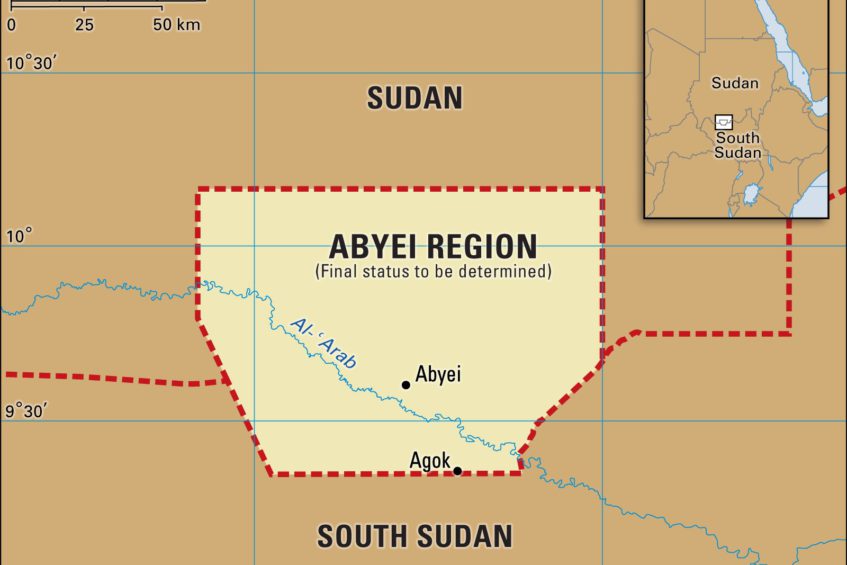
The border region of Abyei has been contested since South Sudan gained independence in 2011.
South Sudan and Sudan have renewed commitment to the 2005 Abyei protocols and the 2009 Hague ruling which gave the disputed area a separate administrative unit.
The deal struck in the Sudanese Capital Khartoum on Tuesday was signed by Vice President of Sudan Sovereign Council, Mohamed Hamdan Dagalo, and South Sudan’s Presidential Security Advisor, Tut Gatluak.
According to the agreement the two countries resolved to stick to the provisions of the Abyei protocols.
They also agreed to allocate 2% each in the oil shares to Abyei and Warrap State.
Top Abyei intellectuals including Luka Biong who met with President Kiir recently before leaving for Khartoum for the talks, witnessed the signing of the document.
Professor Biong said the parties stressed that the resolution on the final state of Abyei will depend on the outcome of the previous agreements.
But in the meantime, he said, the two sides decided to provide basic humanitarian services and security to the Abyei natives to enable the return of those displaced from the area.
“The agreement on the roadmap for the final solution for the Abyei area is what happened today [Tuesday] in the meeting. The most important thing is that the final agreement on the Abyei area depends on the outcome of the previous agreements and is very important for us to get the final solution for the Abyei area,” said Luka Biong.
“People must provide the services and security for the Abyei area, and that is the key points two parties have agreed on because providing the security to the area, especially the security and development so that people will return back to their area while they are waiting for the final solution for the Abyei issue,
For his part, the Undersecretary in Sudan’s Foreign Affairs Minister, Dafallah Al Haj-Ali Osman says the aim of the deal is to achieve trust-building among the Abyei people, awaiting the final resolution of the conflict.
“The two parties will reach the level of providing the services and to reach all communities to be helped with humanitarian assistance and also achieving development,” Haj Ali said.
“We have agreed to encourage community dialogue and engagement between the communities in the Abyei area to achieve more trust-building, and the two parties have called on the regional and international community to support parties’ efforts to provide the security, stability, development and final solution on Abyei.”
The oil-rich border region of Abyei has been contested since South Sudan gained independence in 2011.
The Area was accorded a “special administrative status” by the 2004 Protocol on the Resolution of the Abyei Conflict, known as, the Abyei Protocol.
Under the terms of the Protocol, the Abyei Area was declared part of the states of South Kordofan, and Northern Bahr el Ghazal and issues related to it to be determined by the Presidency made up of President Salva Kiir and former Sudanese President Omar al Bashir.
After years of contention between leaders in South Sudan and Sudan on who is eligible to vote in the referendum, the nine Ngok Dinka chiefdoms took the matter into their own hands by organizing their own popular vote.
They cited the Abyei Protocol in the CPA, and the ruling by the International Permanent Court of Arbitration, which proclaimed that only the Ngok Dinka tribe and permanent residents may vote.
The Sudanese government wanted the nomadic Arab Misseriya tribe, whose cattle access pasture lands in Abyei annually, to be accorded full voting rights.
Several inter-communal clashes between the armed Misseriya pastoralist tribe of Sudan and the Dinka Ngok of South Sudan have led to many civilian deaths in the last decade.
Support Eye Radio, the first independent radio broadcaster of news, information & entertainment in South Sudan.
Make a monthly or a one off contribution.
Copyright 2024. All rights reserved. Eye Radio is a product of Eye Media Limited.